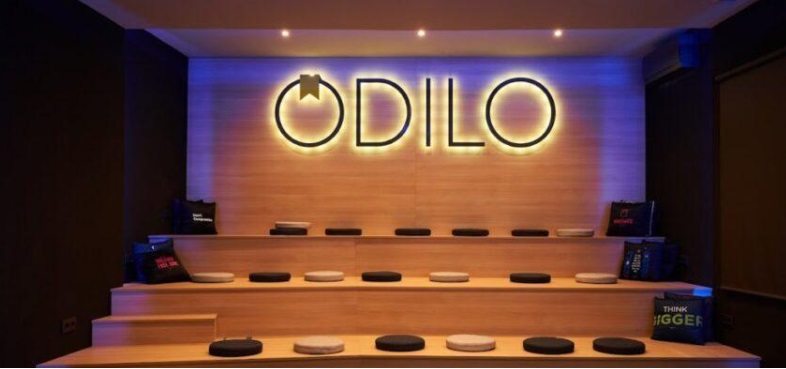Categories:
This interview with the ODILO Team is part of the Corresponsables Dossier: 20th Anniversary of the UN Global Compact Spain.
- How has your organization’s sustainability strategy evolved since joining the UN Global Compact Spain? What motivated your organization to consider sustainability as part of its business strategy?
Since our beginnings in Cartagena, ODILO’s birthplace, we have had the purpose of positively impacting society. We collaborate with private entities and public institutions to promote their social, cultural, and economic growth there.
A decade later, we are a multinational company that provides services to 9,100 organizations in 54 countries and has over 170 million users. Being the first edtech company in Spain to join the Global Compact reinforces this commitment and allows us to move towards a more sustainable, plural, and egalitarian planet.
Since our adhesion, we have accelerated actions to advance our purpose with society. Our unlimited learning ecosystems align with all the standards of the Compact and the SDGs of the 2030 Agenda in labor, environment, transparency and equality, and anti-corruption. A quest for a more just global society will only be achieved if we act together.
- How has the integration of sustainable practices impacted your business model?
We are firmly committed to sustainability in all its dimensions. Regarding the environment, we have the ‘ISO 14001 Environmental Management’, which demonstrates our efforts in environmental protection, energy management, the fight against climate change, and the efficient use of resources.
Secondly, being part of the Global Compact makes it possible for us to take a step forward in our ambition to be more diverse, plural, and a true reflection of the society in which we live. This commitment is evident in the richness and variety of our teams, in which gender, age, sexual identity, culture, or origin do not impede providing personal value. A commitment to the talent that is a pillar of growth, which endorses our ‘Diversity and Inclusion Plan’, and which has allowed us to be accredited with the ISO 30415 ‘Human Resources Management – Diversity and Inclusion’.
This is completed in the third dimension, with internal policies of transparency and good governance, fiscal responsibility and the fight against corruption, prevention of illegal conduct and compliance with current legal requirements, and others to which we subscribe.
Thus, we understand sustainability as an axis of the business, integrated into all organizational verticals and levels, and in which stakeholders, partners and shareholders, staff, customers, suppliers, local communities, and society participate.
- What have been the most important lessons you have learned on your journey towards corporate sustainability?
We were born as a small technology firm in Cartagena, and now we are recognized as one of Spain’s next unicorns. This has been an exciting journey in which we have realized the importance of acting together to achieve sustainable goals. For this reason, we always involve our collaborators and suppliers in our commitments.
Sustainability is an essential pillar in our internal policy to ensure that our activity generates value where we operate and positively impacts society. Thanks to this, we have a direct effect on 5 of the SDGs, in which we are also certified: SDG4 Quality Education, SDG5 Gender Equality, SDG10 Reduction of Inequalities, SDG12 Responsible Production and Consumption and SDG16 Peace, Justice, and Sound Institutions.
- What are the next steps on your path to corporate sustainability?
We are focused on continuing to fulfill our current commitments to our stakeholders and advancing in new alliances to help us move towards a more plural, fair, and sustainable society.
We are part of the Global Compact’s sustainable supplier training program, which focuses on the Global Compact’s Ten Principles, the SDGs and corporate sustainability. In addition, we recently participated in a forum organized by Global Compact Spain with Info Murcia to share our experience in this area.
On the other hand, we developed agreements with associations that are doing great work. For example, ‘Mujeres Lderes en Educación’ (MLE), to promote the integration of women in the sector, ‘Incorpora’ of Fundación LaCaixa, to encourage the recruitment of talent from people at risk of social exclusion. We also worked with the Centro de Recursos de Empleo AIDEMAR and the Fundación Micrograno de Arena for the same purpose.
We will continue to train and generate awareness regarding the importance of sustainable actions at the corporate level and replicable by the workforce. In addition, we will seek spaces to collaborate with foundations and organizations in which we can contribute to a better version of our society.
